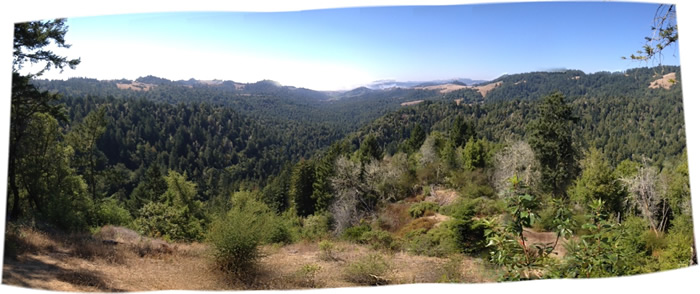Upland Habitat Restoration

Upland restoration provides healthy habitat for wildlife, suitable conditions for agriculture, and manageable areas for residential living. The RCD has done a number of projects to provide for well functioning upland areas, including:
Carbon Farming: Carbon farming involves an array of strategies designed to promote long-term carbon sequestration, holds the potential to significantly reduce atmospheric greenhouse gases by capturing carbon in the soil and plant material, while enhancing soil health and productivity. Learn more with the Carbon Cycle Institute and the Marin Carbon Project, and read about the RCD's planning process.
Road repair: Unpaved rural roads seriously impact hydrology and sediment transport across a landscape if built improperly. Roads can be reshaped with rolling dips and out- and in-slopes to manage stormwater discharge across the road. Roadside ditches can be disconnected from streams by frequently draining them through ditch relief culverts. Stream-crossings should be fitted with culverts that allow for healthy stream flow: they should be level with the streambed, sized for storms, and feature flat bottoms for easy fish and widlife passage. Learn more.
Gully Restoration: Gullies form above streams as a result of soil disruption (such as from improper grazing, intense rainfall events, construction activities, etc.) and will continue to incise or unzip if untreated, sending lose soil and sediment into waterways. Not only do gullies lose precious soil resources, they also damage water quality. Restoration techniques include armoring (with boulders or wood) and replanting with strong-rooted plant species. Gullies that are armored or planted will accumulate debris and soil over time, contributing positively to the soil cycle.
Forest and Fuel Load Management: The Gold Ridge RCD works with landowners to responsibly manage their forest lands for forest health and productivity, wildlife habitat, fire fuels safety, and Sudden Oak Death disease. Visit the Sonoma Forests for additional, excellent educational resources about managing forests.
For more information, contact Brittany Jensen at [email protected] or (707) 823-5244